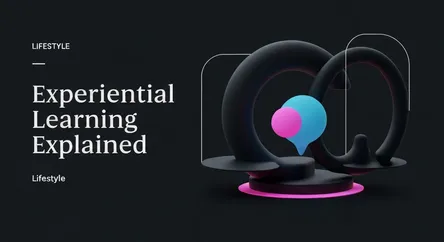Lifestyle
Experiential Learning Explained

Discover experiential learning, the educational philosophy of 'learning by doing.' Understand how it boosts engagement and real-world skills.
What is it?
Experiential learning is an educational approach centered on the idea of 'learning by doing.' Unlike traditional rote memorization, it involves learners actively participating in experiences and reflecting on them to gain new insights and skills. The process is often described by David Kolb's four-stage cycle: having a concrete experience, reviewing and reflecting on it, concluding and learning from the experience, and finally, trying out what has been learned. This can take many forms, including internships, lab experiments, field trips, simulations, and project-based learning. The core principle is that direct experience provides a powerful foundation for understanding and knowledge retention.
Why is it trending?
The trend towards experiential learning is driven by a shift away from passive, lecture-based education. Educators and employers recognize that this method develops crucial 21st-century skills like critical thinking, problem-solving, collaboration, and adaptability. It creates a more engaging and motivating learning environment, which can lead to deeper comprehension and better long-term retention of information. As the modern workplace demands practical skills and the ability to apply knowledge in dynamic situations, educational systems are increasingly adopting this hands-on approach to better prepare students for real-world challenges.
How does it affect people?
Experiential learning transforms education from a theoretical exercise into a personal and impactful journey. For students, it bridges the gap between abstract concepts and practical application, making learning more relevant and memorable. This process builds confidence as learners see the direct results of their efforts and decisions. It encourages taking initiative, managing projects, and learning from both successes and failures in a supportive environment. Ultimately, it equips individuals with not just academic knowledge, but also the practical competencies and reflective habits necessary for lifelong learning and professional success in a complex world.